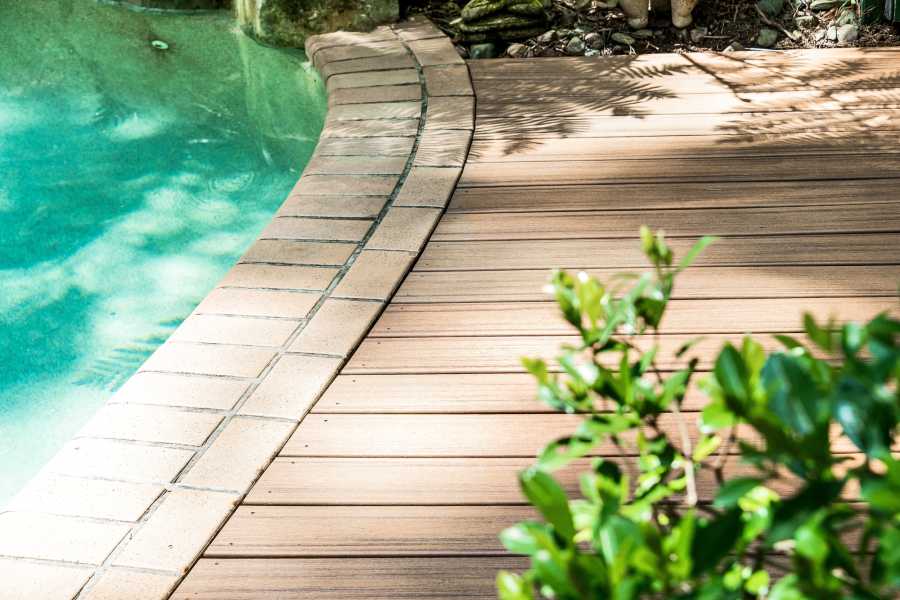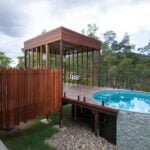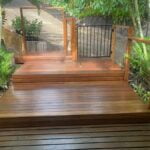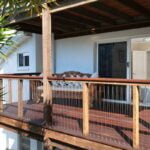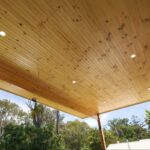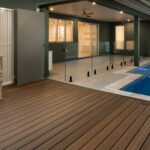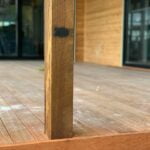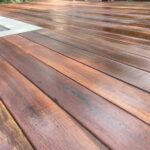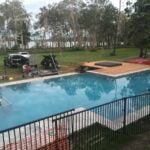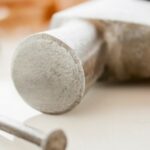Let’s delve into some questions that we often get asked. Everything from where do we start..to do we require certification.. right through to available colours and materials.
I’d like to build a deck – what can I do myself and what do I need a builder for?
If you are handy and capable, you can build a deck for residential use. If the work is valued over $11,000 you can apply for an owner builder permit, which allows you to personally perform the building work and take on the role of head contractor on a building project. You’ll be responsible for engaging and co-ordinating contractors, and scheduling the work.. Any work under an Owner Builder Permit is however not covered by home warranty insurance.
For us, we can only warranty work that we have done ourselves, therefore anything constructed by an owner or anyone outside of our own subcontractor team isn’t covered by our warranty or our certification (if applicable).
When do I need building approval?
Most building work requires approval. Any work that adds to the foot-print of your house will require council approval. Thats is:
-New construction
-Structural alterations and repairs
-Additions to existing structures
-Alterations that change the use, size or height of a building
-Retaining walls over 1m and fences over 1.8m high
Work that generally doesn’t need approval would be:
-Replaces existing work
-Small decks less than 10m2and under 2.4m above natural ground
-Fences less than 1.8m high
For more on this topic head to this blog
How big can my deck be?
As a general rule, buildings and structures can take up a maximum of 50% of your block (site coverage). This includes the home itself, carport, garage or patio roof. If you are within this site coverage allowance then as a rough guide, you can essentially build your deck up to this point.
What materials are best for decking?
On the Sunshine Coast we recommend hardwoods and composite woods. Treated pine framing is ok, but we never recommend pine for decking boards, because it’s prone to shrinking and warping.
Hardwood is a high quality wood, it always looks striking and is durable. You are signing up for annual oiling or staining maintenance. Done right you’ll get optimum longevity from your hardwood.
More often we are now using composites because it has zero maintenance, shrinkage or warping. They are more expensive initially, but once we ore, we finish a job and leave it. They’re also better environmentally because the manufacturing process uses low amounts of chemicals and it uses off cuts, sawdust and recycled plastic. It’s a 95% recycled product which we also like.
How long does hardwood last? And how does that compare with composites?
We find hardwoods tend to last 10-15 years with regular oiling or staining maintenance, verses 25 years + for the modern composite. Hardwoods will scratch with furniture or your pets claws, but can be easily removed with a light sand and oil. Modern composites (commercial grade) don’t scratch or mark… unlike earlier versions.
Are some hardwoods better than others?
The two hardwoods we commonly use are Merbau and Spotted Gum.
Merbau is your entry level hardwood with beautiful warm red-brown tones.
Spotted Gum is another popular hardwood due to its durability and strength. It is sustainably harvested in Australia making it an environmentally sound native choice. The species is also fire retardant and is very dense with low levels of shrinkage.
Jarrah is another choice, it sits on the higher end of the price scale and is also fire resistant. If left unsealed Jarrah will turn a lovely grey colour over time.

